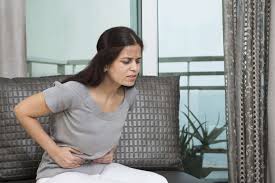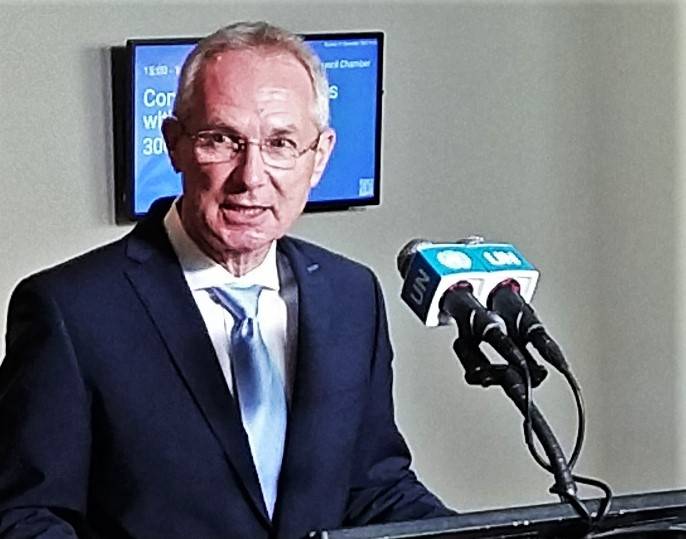Regular exercise can keep your bones strong, improve your mood and combat symptoms like weight gain as your body changes. You can attempt the following activities…reports Asian Lite News
Each woman is affected by menopause in a unique way. Numerous symptoms, including irregular periods, hot flashes, sweating, sleep difficulties, mood swings, irritability, hip and back pain, and more, are associated with this transition for many women.
“Indian women typically go through menopause early, at the average age of 46.2 years, five years earlier than in western nations. Hormonal changes begin even earlier during peri menopause or the time around menopause, which lasts four years or even up to a decade. During this period, 80 per cent of women are affected by menopausal symptoms. A holistic approach to managing this phase can help women relieve the discomfort and stay healthy,” said Jaideep Malhotra, former President of the Indian Menopause Society and South Asian Federation of Menopause Societies.
The secret to a healthier life is to prepare for this time, just as we do for other life milestones like job interviews and parenthood. Here are four general actions you can take to manage menopause better:
Maintain a balanced diet
Good nutrition is a game changer for managing menopause symptoms from hot flashes to bloating. Foods to include and to avoid in your diet are:
Include
* Fruits and vegetables: These are full of the vitamins, minerals and antioxidants your body needs. You cannot go wrong with seasonal vegetables and fresh fruits.
* Fibre: Rich foods and foods rich in calcium and vitamin D: High-fibre foods like leafy greens, kidney beans and wholegrains can also support better health. Dairy products and foods rich in omega-3 fatty acids are good sources of nutrition.
Avoid
* Fatty meats & processed foods: Fast or fried foods, processed snacks and meat are high in sodium, making you feel bloated. These foods can also affect cholesterol levels or increase your risk of heart disease. Also, spicy food may trigger symptoms like hot flashes.

* Alcohol: Moderation is key. Regular alcohol consumption can lead to amplified menopausal symptoms, problems sleeping and heightened mental health issues.
* Caffeine: A caffeine kick makes you more likely to have hot flashes. Resorting to alternative warm drinks is suggested.
Stay active
Regular exercise can keep your bones strong, improve your mood and combat symptoms like weight gain as your body changes. You can attempt the following activities:
* Cardio: Aerobic activities or cardio include endurance activities that encourage you to use your large muscles. You can start with 10-minute a day of brisk walking, jogging, swimming, running, cycling, or even dancing, and build up the intensity as you go
* Strength training: Lifting dumbbells or using weight machines can help strengthen your muscles and bones, while also reducing body fat
* Yoga: Yoga poses — from restorative and supportive to power yoga — are also a good source of targeted symptom relief, helping relax the body. Paired with meditation or breathing exercises, these can also prompt relaxation and mindfulness.
Mental health
Emotional and mental health may be impacted by hormonal changes during peri menopause or menopause. Women going through this stage may exhibit symptoms, including insomnia, anxiety, immobility, exhaustion, stress or depression. The majority of the symptoms can be controlled by altering one’s lifestyle. These symptoms may be lessened by exercise, healthy eating habits, drinking plenty of water, and relaxation techniques for restful sleep. Find what works for you and make realistic, attainable goals.
Consult with a doctor
Co-morbid disorders, such osteoporosis and heart disease, which menopausal women are more likely to develop, can be prevented by maintaining good health. Additionally, there are a variety of therapeutic choices for menopause symptoms, such as menopausal hormonal therapy, which can help keep your body’s oestrogen levels stable and control symptoms. If you experience symptoms that concern you, it is always advisable to see a doctor.

“Menopause is a time of transition for women, which can prove challenging. At Abbott, believe it is vital to raise awareness on the physical, mental and overall emotional aspects of menopause, so that women can seek the help they may need and live this life stage fully. At the same time, we partner with healthcare professionals to share therapy best practices and change how we address women experiencing menopause, to support women holistically, beyond physical symptoms,” said Jejoe Karankumar, Medical Director, Abbott India.
ALSO READ-Steps to navigate emotional roller coaster of menopause














